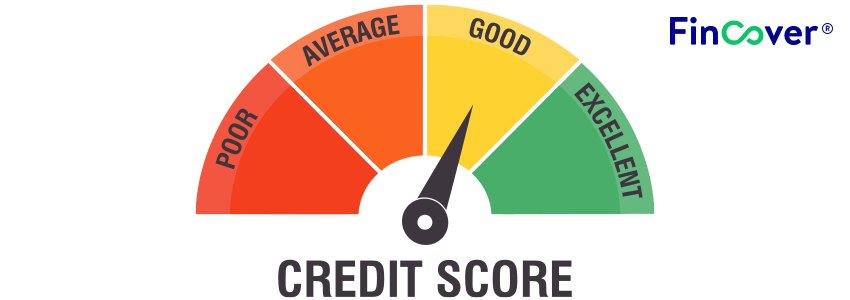The Power of Credit Score in Credit Card Eligibility
In India, your credit score is a three-digit numerical representation of your creditworthiness, calculated by credit bureaus like CIBIL. It plays a significant role in determining your eligibility for a credit card and the type of card you qualify for. Here’s how your credit score influences your credit card journey:
- Approval Chances: A strong credit score significantly increases your chances of getting a credit card approved.
- Credit Limit: Your credit score can impact the credit limit offered on your card. A higher score may qualify you for a higher credit limit, providing greater spending power.
- Interest Rates: Lenders typically offer lower interest rates on credit cards to applicants with good credit scores. This can translate to significant savings over time, especially if you carry a balance.
- Rewards and Benefits: Cards with attractive rewards programs and benefits are often reserved for applicants with high credit scores.
Understanding Credit Score Requirements
There’s no universally set minimum credit score for credit cards in India. However, lenders have their own benchmarks, which can vary depending on the type of card:
- Premium Credit Cards: These cards offer exclusive benefits and rewards programs. Typically, a credit score of 750 or above is recommended for qualifying for premium cards.
- Regular Credit Cards: These cards offer basic features and benefits. A score of 700-749 might be sufficient for approval, but interest rates and credit limits may be less favorable.
- Secured Credit Cards: Designed for individuals with limited or no credit history, these cards require a security deposit which acts as your credit limit. The credit score requirement for secured cards may be lower, but they often come with lower credit limits and annual fees.
Why Credit Score Matters
Your credit score tells lenders how responsible you are with managing credit. A good score indicates you’re a reliable borrower who makes timely payments. Conversely, a low score suggests a higher risk of missed payments or defaults, making lenders wary of issuing you a credit card or offering favorable terms.
Factors Affecting Your Credit Score
Several factors influence your credit score, including:
- Repayment History: Consistent on-time payments for credit cards, loans, and other debts significantly improve your score.
- Credit Utilization Ratio: This is the percentage of your credit limit you’re using. Aim to keep it below 30% for a positive impact on your score.
- Credit Mix: Having a healthy mix of secured loans (e.g., car loans) and unsecured loans (e.g., credit cards) can demonstrate responsible credit management.
- Credit Inquiries: Excessive credit inquiries within a short period can negatively impact your score. Apply for credit cards only when necessary.
Building a Good Credit Score for Credit Cards
Here are some strategies to improve your credit score and increase your chances of qualifying for a desirable credit card:
- Maintain Timely Payments: This is the single most significant factor influencing your score. Make all your debt payments on or before the due date.
- Monitor Your Credit Report: Regularly review your credit report for errors and dispute any inaccuracies promptly.
- Become an Authorized User: Consider becoming an authorized user on someone else’s credit card with a good payment history. Their positive payment behavior can improve your score over time.
- Practice Responsible Borrowing: If you already have a credit card, use it responsibly and pay your balances in full whenever possible.
Additional Considerations Beyond Credit Score
While your credit score is crucial, here are some other factors that lenders may consider when evaluating your credit card application:
- Employment Status: Stable employment history demonstrates consistent income to repay the credit card debt.
- Income Level: Your income level should be sufficient to cover your monthly expenses and potential credit card payments comfortably.
- Existing Debt: A high debt-to-income ratio (DTI) may make lenders hesitant to offer you a credit card, as it indicates you’re already carrying a significant financial burden.
- Banking Relationship: Existing relationships with the bank or financial institution can sometimes work in your favor during the credit card application process.
Seeking Professional Guidance
If you’re unsure about your creditworthiness or need assistance navigating the credit card application process, consider consulting:
- Financial Advisor: A qualified financial advisor can assess your financial situation, recommend strategies to improve your credit score, and guide you towards the right credit card options based on your needs and goals.
- Credit Counselor: A credit counselor can provide personalized advice to help you manage your debt, improve your credit score, and achieve your financial goals.
Conclusion
Understanding credit score requirements and taking proactive steps to improve your score are crucial steps towards acquiring a credit card and building a healthy financial future. Remember, a good credit score empowers you to access better credit card options, potentially saving you money on interest rates and unlocking valuable rewards and benefits. By following the tips outlined in this blog and seeking professional guidance when needed, you can navigate the world of credit cards with confidence and unlock the doors to greater financial freedom and flexibility.


















